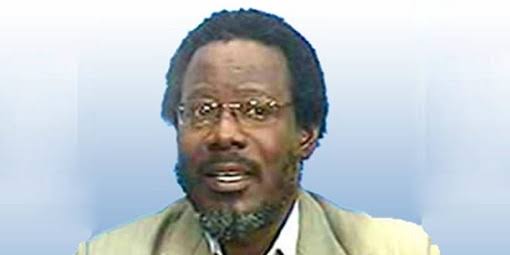I have heard many people argue that First Class has become cheap in Nigerian universities. They posit that some universities now distribute it as ‘pure water’ and that private universities are most guilty of this unwholesome practice, as some of them use it as a business strategy to keep attracting students. A lecturer at the Department of Chemistry, University of Abuja, Dr Ben Ugwoke, once reportedly averred that universities awarded first class to make their products “competitive.” Similarly, the Dean of Post Graduate Studies, Bayero University, Kano, Prof. Umaru Pate, believes the trend is worrisome. In a recent report in Daily Trust, he alleged that some universities deliberately awarded first class degrees in order to be seen as serious institutions where people could come in and graduate with very good grades. He said the situation was particularly so because the job market had become very stiff and highly competitive.
Others that are convinced that universities are awarding first class to some students undeserving of that class of degree, are also of the opinion that Nigeria would have been more positively impacted if the first class graduates being churned out by our universities are really that good. If we accept this argument, we can as well assume that majority of Nigerians are stupid and foolish going by the state of the nation almost 60 years after independence from its colonial masters. But, we know that this is not true. Nigeria is globally acknowledged to be blessed with outstanding, brilliant and intelligent citizens. As a matter of fact, four percent of Nigerians in the US hold the Ph. D. degree compared to one per cent of the general US population, according to the United Census Bureau. Also, 17 percent of Nigerians in the US are said to hold a master’s degree while 37 per cent have a bachelor’s degree. With this kind of intimidating statistics, I doubt if anyone can describe Nigerians as being stupid despite the poor affairs of the nation.
Interestingly, government has not been left out of the debate on the number of students getting first class. The National Universities Commission, the supervisory body for universities in the country, even made the issue part of its main agenda at one of its retreats. At the end of the day, a statement by the commission summed up its stand on the matter. From the statement, it seems the NUC also believes the award of first class is becoming commonplace. According to the agency’s spokesperson, Ibrahim Yakassai, “the reality of the situation is that only a few people who are exceptionally brilliant should get first class and they are in the minority anywhere in any school.’’
In line with the NUC’s assertion, I think it’s important to first ascertain the percentage of Nigerians graduating with a first class in order to establish if they are indeed outside of the minority pool or not. A 2019 report by the Daily Trust shows that 36 Nigerian universities produced a total of 2, 288 graduates with First Class degrees out of the 127,023 students that completed their studies in the 2018/2019 academic session. This is a mere 1.8 per cent of the total graduates produced in 2019 and certainly not in the majority.
The University of Lagos, for instance, recorded 271 first class out of 6,992 students representing 3.9 per cent of the total graduates produced for the year; the University of Ibadan had 241 out of 7,330 representing 3.3 per cent; Usmanu Danfodiyo University, Sokoto had 113 first class out of 10,994 students, representing 1.03 per cent while University of Port Harcourt recorded 106 first class degrees from 4,771 students it graduated last year, representing 2.22 per cent.
Among the private universities, a total of 215 students of the Covenant University were conferred with First Class degrees out of the 1,580 students that graduated- that is 13.6 per cent of the graduates for 2019; Afe Babalola University produced 99 First Class out of its 979 graduates representing 10.1 per cent of graduates produced for the year while Babcock University had 62 first class graduates out of its 1,926 graduates representing 3.2 per cent of the graduates produced for the year.
The statistics above show that students that got first class in both public and private universities are in the minority. So, how did we arrive at the bogus conclusion that first class degrees are probably becoming two or ten a penny? Agreed that the percentage of first class produced by private universities is higher when compared with the public universities, but what does it really take to have a first class? As far as I know, all that is required to get a first class in most Nigerian universities is for students to score 70% or more in their overall assessment. Any student that makes this a goal can easily achieve it, especially in private universities where there are less distractions and better learning facilities than what obtains in the poorly funded Nigerian public universities.
Those who give tips on how to get a first class will tell you that getting this class of degree starts from the very beginning in class. They also aver that the decision to get a first class is mainly taken by the student. Granted having a conducive environment, quality faculty, good library and other factors come to play, but they are mere addendum to an individual student’s decision to graduate with a first class degree. It is an aberration for a lecturer to, for example, under-mark a student just to prove that first class is not cheap. It could have been a common trend in the past, but, that doesn’t make it right.
READ ALSO: NDDC: The Hawks Are Circling Again
As editor of Saturday Punch, a column was created for first class graduates from any part of the world to share their experiences and secrets of success. Nearly all the first class graduates featured in that column had a similar story to tell. Almost all of them said they took a decision right from the beginning of their admission to the university to come out with a first class. They made it a goal, worked hard at it, and strived to maintain a high CGPA all through their academic years.
Besides, most of the first class graduates interviewed had a consistent reading habit; they took their time to know what worked for them and applied these strategies to their studies. Almost all of them said they spent hours daily to revise their school work for the day. From their interviews, it was obvious that almost all of them put in the maximum effort required to attain their goal. Not only that, many of them had a motivation for wanting to have a first class. For some of them, the motivation was just to please their parents.
While the hours in class were important to many of these graduates, the hours outside class time were also important as well. Most of them invested quality hours in reading through other materials apart from the ones available to the general class. They spent less time on social media. They loved paying attention to details and every little mark mattered to them.
All these habits are in line with experts’ tips for having a first class. Let’s face it, first class students are seldom found in bars, clubs or parties. Most often, they are too serious minded. Some of them may try to maintain a balanced lifestyle but they are rarely at the extreme. These are not sacrifices that many students would want to make.
As far as I am concerned, first class is nothing but a mere academic feat. It is not an automatic ticket to anything. Ultimately, everybody would have to prove their worth in the job market. In fact, there is a wide difference between academic and emotional intelligence. Not all first class graduates combine both. That an individual comes out with a first class in Economics or Business Administration for instance does not mean that he possesses the wits of Nigeria’s business gurus like Razak Okoya or an Aliko Dangote. So, getting a first class grade is not the only way to improve on one’s job prospects. Other factors are involved. After all, there are many people that made lower grades and have made themselves more employable than some first class graduates. Also, there are people that graduated with third class who are today employers of first class graduates. No big deal!
Don’t get me wrong. I am not in any way trying to undermine the worth of a first class. Instead, the point being made is that it is rather pedestrian to reduce the worth of a first class to being a meal ticket or a means of attracting students to a university; or to ignore the efforts that some students put into achieving their goal and assume that they are being dashed a first class grade. Employers can’t be fooled. They are likely to blacklist any university notorious for awarding questionable first class, which becomes bad publicity for such university rather than a means of attraction in the long run.
Really, for me, any university (if there is any) that is fond of awarding questionable first class will suffer the consequences sooner or later. So, rather than complaining about universities producing too many first class, I think the focus should be on working towards creating an environment where every graduate thrives regardless of their class of degrees.
* Olabisi Deji-Folutile is the Editor-in-Chief of Franktalknow.com and member of the Nigerian Guild of Editors. Email: [email protected]












